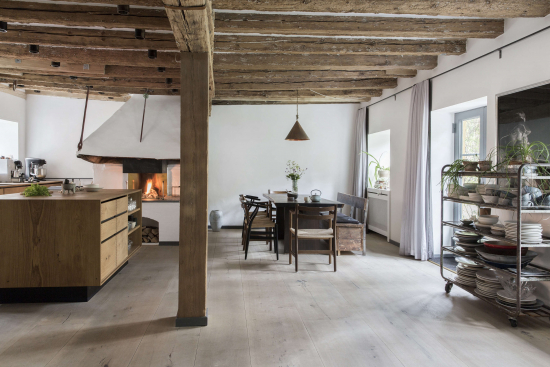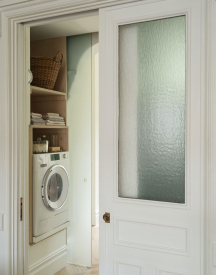Remodeling 101: A Solar Panel Primer, Eclipse Edition
How much does a solar energy system cost?
The cost of a photovoltaic system is an up-front investment; the exact amount depends on how much electricity you use and what percentage of that you would like your solar energy system to supply. The more electricity you require, the larger the system required (see chart below for a ballpark figure).
Government-funded solar incentive programs vary from country to country and even from state to state. Some solar-incentive programs pay you back over time based on the energy you generate. Other solar incentives are one-time payments of rebates or credits. To find out the incentives in your area, consult Wholesale Solar’s Solar Incentives by State.
The average cost of installing a solar system varies across the US, and some of the differential is due to these local, regional, and state incentives. But estimates show that solar energy systems create monthly savings across the board: According to EnergySage.com, the average savings from use of a solar system over 20 years can range from $7,000 to over $30,000 (but varies, depending on locale). For estimates based on your specific area, try Google’s Project Sunroof feature, which allows you to plug in your home address for personalized figures.

How much can I expect to save on utility bills?
The answer depends on what you currently pay for electricity and how much credit your utility company will give you for the amount of power you don’t use. This estimate can be determined by approximating how much power your solar system will provide compared to your current usage.
Are solar panels ever good-looking?
Don’t like the bulky look of solar panels? The next generation of solar products, Building-Integrated Photovoltaics (BIPV), show great promise: photovoltaic cells are being incorporated into shingles, windows, siding, and other building materials, enabling structures in the future to have seamless solar solutions.

Solar Panels Recap:
Pros:
- Good for the environment
- Reduced utility costs
- Lessens our dependence on fossil fuels
Cons:
- Relatively high initial cost
- The amount of savings is not straightforward
- Not traditionally aesthetically pleasing
Had firsthand experience with solar paneling? In the Comments section, fill us in on your finds.

For more remodeling advice, browse our Remodeling 101 series. And for more on solar paneling and eco-friendly upgrades, see:
N.B. This post is an update; the original story ran on July 3, 2014.
(Visited 500 times, 45 visits today)
Frequently asked questions
What are solar panels?
Solar panels, also known as photovoltaic (PV) panels, are devices that convert sunlight into electricity. They are typically made up of multiple solar cells that generate direct current (DC) electricity when exposed to sunlight.
How do solar panels work?
Solar panels work by harnessing the energy from sunlight. When sunlight hits the solar cells, the photons in the light excite the electrons in the cells, creating an electric current. This direct current is then converted into alternating current (AC) electricity using an inverter, which can be used to power household appliances and electronics.
What are the benefits of installing solar panels?
There are several benefits to installing solar panels in a home. Solar energy is renewable and sustainable, reducing reliance on fossil fuels. Solar panels can lower electricity bills by generating your own electricity, provide a backup power source during outages, and may qualify for government incentives or rebates. They also contribute to reducing carbon emissions and environmental impact.
Can solar panels generate enough electricity to power my entire home?
The amount of electricity solar panels can generate depends on various factors, including the size of the system, the location, and the amount of sunlight received. While it is possible for solar panels to generate enough electricity to power an entire home, it often depends on factors such as energy consumption, available roof space, and the size of the solar panel system installed.
How long do solar panels last?
Solar panels are designed to be durable and can last for several decades. Most manufacturers offer warranties ranging from 20 to 25 years, indicating the expected lifespan of the panels. With regular maintenance and proper care, solar panels can continue to generate electricity efficiently beyond their warranty period.
Are solar panels maintenance-free?
Solar panels generally require minimal maintenance. Regular cleaning to remove dust and debris, checking for any shading issues caused by nearby trees or structures, and ensuring the inverter is functioning properly are some of the typical maintenance tasks. It is also advisable to have the system inspected by a professional periodically.
Can solar panels work during cloudy or rainy days?
Solar panels can still generate electricity on cloudy or rainy days, although their efficiency may be reduced compared to sunny conditions. While direct sunlight is ideal, solar panels can still produce electricity from diffused sunlight. The overall energy production may vary depending on the weather conditions and the specific panel’s technology.










